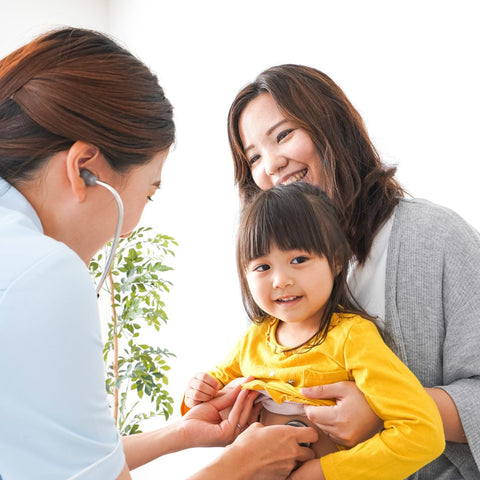
When Should I Seek Medical Attention for Chickenpox?
Chickenpox is a viral infection that is highly contagious and usually affects children.
Although it is a common illness, it can sometimes have serious consequences. 
Knowing when to seek medical attention for chickenpox prevents complications and ensures a quick recovery.
In this article, we will discuss the signs and symptoms of chickenpox, when to seek medical attention, and what to expect during a doctor's visit.
Signs and Symptoms of Chickenpox
Chickenpox is caused by the varicella-zoster virus and is characterised by a rash that usually starts on the face, scalp, and trunk before spreading to other parts of the body.
The rash appears as small, itchy, red bumps that can turn into fluid-filled blisters.
Other symptoms of chickenpox include:
- Fever
- Headache
- Fatigue
- Loss of appetite
Symptoms usually appear within 10 to 21 days after exposure to the virus and can last several weeks.
When to Seek Medical Attention for Chickenpox
If you or your child have chickenpox, knowing when to seek medical attention is important.
Contact your GP immediately if your child develops any abnormal symptoms, such as an infection in the blisters on their skin, chest pain or difficulty breathing.
Each of these could indicate a serious complication and require immediate medical attention.
Early intervention can help prevent complications and ensure a speedy recovery.
Most cases of chickenpox are mild and can be treated at home. However, there are certain situations where you should seek medical attention:
Complications
Although rare, chickenpox can lead to serious complications, especially in high-risk individuals such as pregnant women, newborns, and people with weakened immune systems.
Complications of chickenpox include:
- Bacterial infections of the skin
- Pneumonia
- Encephalitis (inflammation of the brain)
- Reye's syndrome (a rare but serious illness that can affect the liver and brain)
If you or your child develop any of these complications, seek medical attention immediately.
Severe Symptoms
Although most symptoms of chickenpox are mild, some people can develop severe symptoms such as:
- Severe or persistent fever (above 102°F or 38.9°C)
- Severe headache or dizziness
- Difficulty breathing or shortness of breath
- Chest pain or pressure
- Blurred vision or sensitivity to light
- Seizures
Again, if you or your child develop any of these symptoms, seek medical attention immediately.
Medication
If you or your child are at high risk of complications from chickenpox, your doctor may prescribe antiviral medication to reduce the severity of the illness.
Antiviral medication is most effective when taken within 24 hours of the onset of symptoms, so it is important to seek medical attention as soon as possible if you suspect you or your child have chickenpox.
What to Expect During a Doctor's Visit
If you or your child develop severe symptoms or complications from chickenpox, your doctor may recommend hospitalisation for treatment.
During a doctor's visit, your doctor will perform a physical exam and may order blood tests or other diagnostic tests to confirm the diagnosis.
If you or your child are prescribed antiviral medication, make sure to follow the instructions carefully and finish the entire course of medication.
Conclusion
Chickenpox is a common illness that usually resolves on its own without complications. However, it is crucial to know when to seek medical attention for chickenpox to prevent serious complications and ensure a quick recovery.
Seek medical attention if you or your child develop severe symptoms or are at high risk for complications.
Follow your doctor's instructions carefully to ensure a speedy recovery.
FAQs
Can adults get chickenpox?
Yes, chickenpox can be dangerous during pregnancy, especially in the first 20 weeks. It can cause serious complications such as pneumonia, encephalitis, and premature birth. If you are pregnant and have been exposed to chickenpox, contact your doctor immediately for advice.
Can chickenpox be prevented with a vaccine?
Yes, a chickenpox vaccine is available and is recommended for all children and adults who have not had chickenpox or have not been vaccinated.
How long is someone with chickenpox contagious?
Someone with chickenpox is contagious from 1 to 2 days before the rash appears until all the blisters have crusted over.
How can I relieve the symptoms of chickenpox at home?
You can relieve the symptoms of chickenpox at home by taking acetaminophen to reduce fever and itching, using calamine lotion or baking soda baths to soothe the skin, and staying hydrated by drinking plenty of fluids. Avoid scratching the blisters to prevent infection.
